Dear friends and readers, these are self design stamps to show my gratitude to our Olympian, though they are non philatelic and are shown, an attempt has been made to highlight the salient features of the Indian Olympic and its glory till date.
Even though few Olympians have won the medals and saved our skin with exemplary display, our expectations relies only on our lady luck rather that well focused approach to win the medal, keeping the finger crossed and hoping that one day we will show the world that we can lead the medal’s tally and see many stamps issued by department of Indian post on this subject
2008Games:

Abhinav Bindra won the gold medal in the men's 10m air rifle shooting event. In doing so, he won the first ever individual gold medal for Indian and the first medal in any event for India at the Games,
2008Games:

Sushil Kumar an Indian wrestler who won the bronze medal in the Men's 66kg Freestyle Wrestling event this was Second Olympic medal in Wrestling at the games.
2008 Games:

Vijender Kumar won a bronze medal in the middleweight boxing category, having lost in the semifinals. This was India's first-ever Olympic medal in boxing at the games.
2004 Games:
 She contested at the 2004 Athens Olympics, but failed to win a medalRound 1: 6.69 m, Final: 6.83 m finished 6th place
She contested at the 2004 Athens Olympics, but failed to win a medalRound 1: 6.69 m, Final: 6.83 m finished 6th place
2004 Games:
 Lt. Col. Rajyavardhan Singh Rathore won a Silver medal in the Shooting, Men's Double Trap, at games which made him the second Indian Men to win an Olympic Silver medal.
Lt. Col. Rajyavardhan Singh Rathore won a Silver medal in the Shooting, Men's Double Trap, at games which made him the second Indian Men to win an Olympic Silver medal.
2000 Games :
 Karnam Malleswari won a bronze medal in the games , the first Indian woman to win an Olympic medal.
Karnam Malleswari won a bronze medal in the games , the first Indian woman to win an Olympic medal.
1988 Games:
 Manoj Pingle Hero of games finished fifth in Boxing to Mexican Gonzales on split decision in the quarter-finals
Manoj Pingle Hero of games finished fifth in Boxing to Mexican Gonzales on split decision in the quarter-finals
1984 Games:

 India didn't win a medal but the Games are remembered for bringing Indian women athletes centre stage. P. T. Usha lost the bronze medal in 400 metre hurdles by one-hundredth of a second. Earlier in the Games, Shiny Abraham (Shiny Wilson) reached the semifinals of 800 metres with a then personal best of 2:04.69 seconds and became the first Indian woman to reach the semi-finals of an Olympic event.
India didn't win a medal but the Games are remembered for bringing Indian women athletes centre stage. P. T. Usha lost the bronze medal in 400 metre hurdles by one-hundredth of a second. Earlier in the Games, Shiny Abraham (Shiny Wilson) reached the semifinals of 800 metres with a then personal best of 2:04.69 seconds and became the first Indian woman to reach the semi-finals of an Olympic event.
1980 Games:
 Hari chand Hero of games in is maiden appearance in the marathon clocked 2.22.08 to finished 31st
Hari chand Hero of games in is maiden appearance in the marathon clocked 2.22.08 to finished 31st
1976 Games :
 1972 Games:
1972 Games:
 Edward Sequeira India Hero of the 1972 Games leading the last lap but finished 11th in 5000mts heats
Edward Sequeira India Hero of the 1972 Games leading the last lap but finished 11th in 5000mts heats
1968 Games:
 Bishambar India Hero of the 1968 games was beaten in the freestyle bantamweight on points by the Tokyo Olympic gold medalist
Bishambar India Hero of the 1968 games was beaten in the freestyle bantamweight on points by the Tokyo Olympic gold medalist
1960 Games:
 Milka Singh India Hero of the 1960 games Missed a medal by one –tenth of a second despite a time faster than the then world record
Milka Singh India Hero of the 1960 games Missed a medal by one –tenth of a second despite a time faster than the then world record
1952 Games:
 India won first medal as independent Nation when Khashaba Dadasaheb Jadhav won the wrestling bronze medal in the year 1952
India won first medal as independent Nation when Khashaba Dadasaheb Jadhav won the wrestling bronze medal in the year 1952
1936 Games:
 Legendary Dhyan Chand the captain of India 1936 hockey team and only personality who found a place among the Indian stamps this is only stamps issuied by postal department on Olympic personality in the year 1980 after his death
Legendary Dhyan Chand the captain of India 1936 hockey team and only personality who found a place among the Indian stamps this is only stamps issuied by postal department on Olympic personality in the year 1980 after his death
1920 Games:
 Phadeppa Dareppa Chaugule is India's first Olympic marathon runner. He represented India in this game, and finished 19th with a timing of 2 hours 50 minutes 45.2 seconds. He hails from the town of Belgaum in Karnataka
Phadeppa Dareppa Chaugule is India's first Olympic marathon runner. He represented India in this game, and finished 19th with a timing of 2 hours 50 minutes 45.2 seconds. He hails from the town of Belgaum in Karnataka
1900 Games:

Norman Gilbert Pritchard (also known as Norman Trevor) an athlete from India Pritchard was born in Calcutta to George Petersen Pritchard and Helen Maynard Pritchard, Pritchard was the first Indian athlete to participate in the Olympic Games and first athlete representing an Asian nation to win an Olympic medal. He won two silver medals in the 1900 Summer Olympics who went on to star in Hollywood and Broadway. He was of British descent and moved to England permanently in 1905.































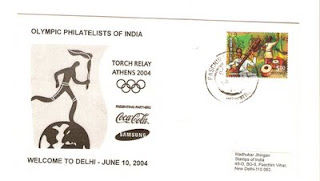


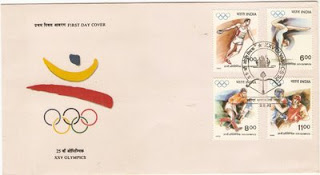

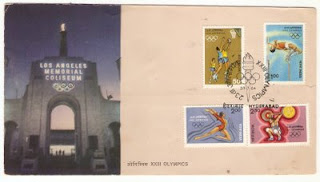


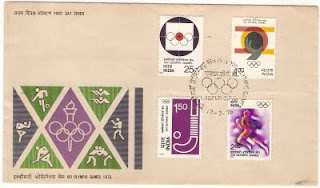
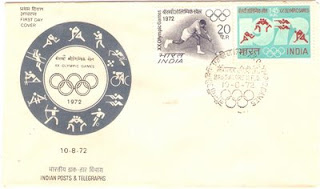 The 1968 Summer Olympics, officially known as the Games of the XIX Olympiad, were an
The 1968 Summer Olympics, officially known as the Games of the XIX Olympiad, were an 